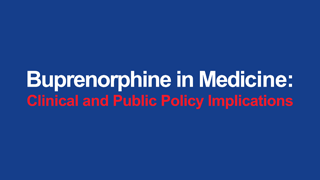Evaluation of cognitive functioning in 101 patients before opiate detoxification: Implications in setting up therapeutic strategies
DOI:
https://doi.org/10.5055/jom.2005.0012Keywords:
detoxification, rehabilitation, cognitive function, addictionAbstract
Many studies have brought to light the facts that repeated use of drugs significantly influences one’s cognitivefunctions, and that cognitive problems could interfere directly with one’s capacity to participate in a rehabilitation program. In this research, we used the Global Deterioration Scale (GDS) to assess the cognitive status of 101 hospitalized patients in an opiate detoxification program. The results reveal that a major-ity of the tested patients present cognitive abnormalities to varying degrees of severity. Furthermore, these cognitive deficits are correlated withfour Addiction Severity Index (ASI) scales (medical, alcohol use, drug use, and psychiatry, respectively). Considering the results, because cognition is a major issue in detoxification and rehabilitation programs, simple cognitive screening (as with the GDS) coupled with a particular interest in some aspects of a patient’s anamnesis could lead to better management of opiate-dependentpatients.References
Calev A: Neuropsychology of schizophrenia and related disorders. In Calev A (ed.): Assessment of Neuropsychological Functions in Psychiatric Disorders. Washington: American Psychiatric Press, 1999.
Elvelvag B, Goldberg TE: Cognitive impairment in schizophrenia is the core of the disorder. Crit Rev Neurobiol. 2000; 14 (1): 1-21.
Gold JM, Carpenter C, Randolph C, et al.: Auditory working memory and Wisconsin card sorting test performance in schizophrenia. Arch Gen Psychiatry. 1997; 54(2): 159-165.
Calev A, Pollina DA, Fennig S, et al.: Neuropsychology of mood disorders. In Calev A (ed.): Assessment of Neuropsychological Functions in Psychiatric Disorders. Washington: American Psychiatric Press, 1999.
Gaebel W, Wolwer W: Facial expression and emotional face recognition in schizophrenia and depression. Eur Arch Psychiatry Clin Neurosci. 1992; 242(1): 46-52.
Dolan RJ, Bench CJ, Brown RG, et al.: Neuropsychological dysfunction in depression: The relationship to regional cerebral blood flow. Psychol Med. 1994; 24(4): 849-857.
Addington J, Addington D: Facial affect recognition and information processing in schizophrenia and bipolar disorder. Schizophr Res. 1998; 32(3): 171-181.
Tabares-Seisdedos R, Balanza-Martinez V, Salazar-Fraile J, et al.: Specific executive/attentional deficits in patients with schizophrenia or bipolar disorder who have a positive family history of psychosis. JPsychiatr Res. 2003; 37(6): 479-486.
Bearden CE, Hoffman KM, Cannon, TD: The neuropsychology and neuroanatomy of bipolar affective disorder: A critical review. Bipolar Disord. 2001; 3(3): 106.
Quraishi S, Frangou S: Neuropsychology of bipolar disorder: A review. J Affect Disord. 2002; 72(3): 209-226.
Mandal MK, Rai A: Responses to facial emotion and psy-chopathology. Psychiatry Res. 1987; 20(4): 317-323.
O’Donnell DW, Calev A: Neuropsychology of nonpsychotic, nonaffective psychiatric disorders. In Calev A, Phil D (eds.): Assessment of Neuropsychological Functions in Psychiatric Disorders. Washington: American Psychiatric Press, 1999.
Mandillo S, Rinaldi A, Oliverio A, et al.: Repeated administration of phencyclidine, amphetamine, and 801 selectively impairs spatial learning in mice: A possible model of psychotomimetic drug-induced cognitive deficits. Bahav Pharmacol. 2003; 14(7): 533-544.
Kolb B, Gorny G, Li Y, et al.: Amphetamine or cocaine limits the ability of later experience promotes structural plasticity in the neocortex and nucleus accumbens. Proc Natl Acad Sci U S A. 2003; 100(18): 10523-10528.
Di Sclafani V, Tolou-Shams M, Price LJ, et al.: Neuropsycho-logical performance of individuals dependent on crack-cocaine, or crack-cocaine and alcohol, at 6 weeks and 6 months of abstinence. Drug Alcohol Depend. 2002; 66(2): 161-171.
Solowij N, Michie PT, Fox AM: Differential impairments of selective attention due to frequency and duration of cannabis use. Biol Psychiatry. 1995; 37(10): 731-739.
Grant I, Adams KM, Carlin AS, et al.: The collaborative neu-ropsychological study of polydrug users. Arch Gen Psychiatry. 1978; 35(9): 1063-1074.
Hill SY, Mikhael MA: Computerized transaxial tomographic and neuropsychological evaluations in chronic alcoholics and heroin abusers. Am J Psychiatry. 2003; 136(4): 598-602.
Davis PE, Liddiard H, McMillan TM: Neuropsychological deficits and opiate abuse. Drug and Alcohol Dependency. 2002; 67: 105-108.
Pope HG, Gruber AJ, Hudson JI, et al.: Neuropsychological performance in long term cannabis users. Arch Gen Psychiatry. 2001; 58(10): 909-915.
Fein G, Di Sclanafi V, Meyerhoff DJ: Prefrontal cortical volume reduction associated with frontal cortex function deficit in 6-week abstinent crack-cocaine dependent men. Drug Alcohol Depend. 2002; 68: 87-93.
Roselli M, Ardila A: Cognitive effects of cocaine and polydrug abuse. J Clin Exp Neuropsychol. 1996; 18: 122-135.
Sierra M, Berrios GE : Towards a neuropsychiatry of conversion hysteria. Cogn Neuropsychiatry. 1999; 4(3): 267-287.
Jaeger J, Berns S: Neuropsychological management, treatment, and rehabilitation on psychiatric patients. In Calev A (ed.): An Assessment of Neuropsychological Functions in Psychiatric Disorders. Washington: American Psychiatric Press, 1999.
Beatty WW, Katzung VM, Moreland VJ, et al.: Neuro-psychological performance of recently abstinent alcoholics and cocaine abusers. Drug Alcohol Depend. 1995; 37: 247-253.
Salmon D: Neuropsychiatric measures for cognitive disorders. In: Handbook of Psychiatric Measures. Washington: American Psychiatric Association, 2000.
McLellan AT, Kushner H, Metzger D, et al.: The fifth edition of the addiction severity index. JSubst Abuse Treat. 1992; 9(3): 199-213.
Reisberg B, Ferris SH, De Leon MJ, et al.: Global deterioration scale (GDS). Psychopharmacol Bull. 1988; 24: 661-663.
Fals-Stewart W: Detection of neuropsychological impairment among substance-abusing patients: Accuracy of the neurobehavioral cognitive status examination. Exp Clin Psychopharmacol. 1997; 5(3): 269-276.
Darke S, Sims J, McDonald S, et al.: Cognitive impairment among methadone maintenance patients. Addiction. 2000; 95(5): 687-695.
Downloads
Published
How to Cite
Issue
Section
License
Copyright 2005-2025, Weston Medical Publishing, LLC and Journal of Opioid Management. All Rights Reserved.










